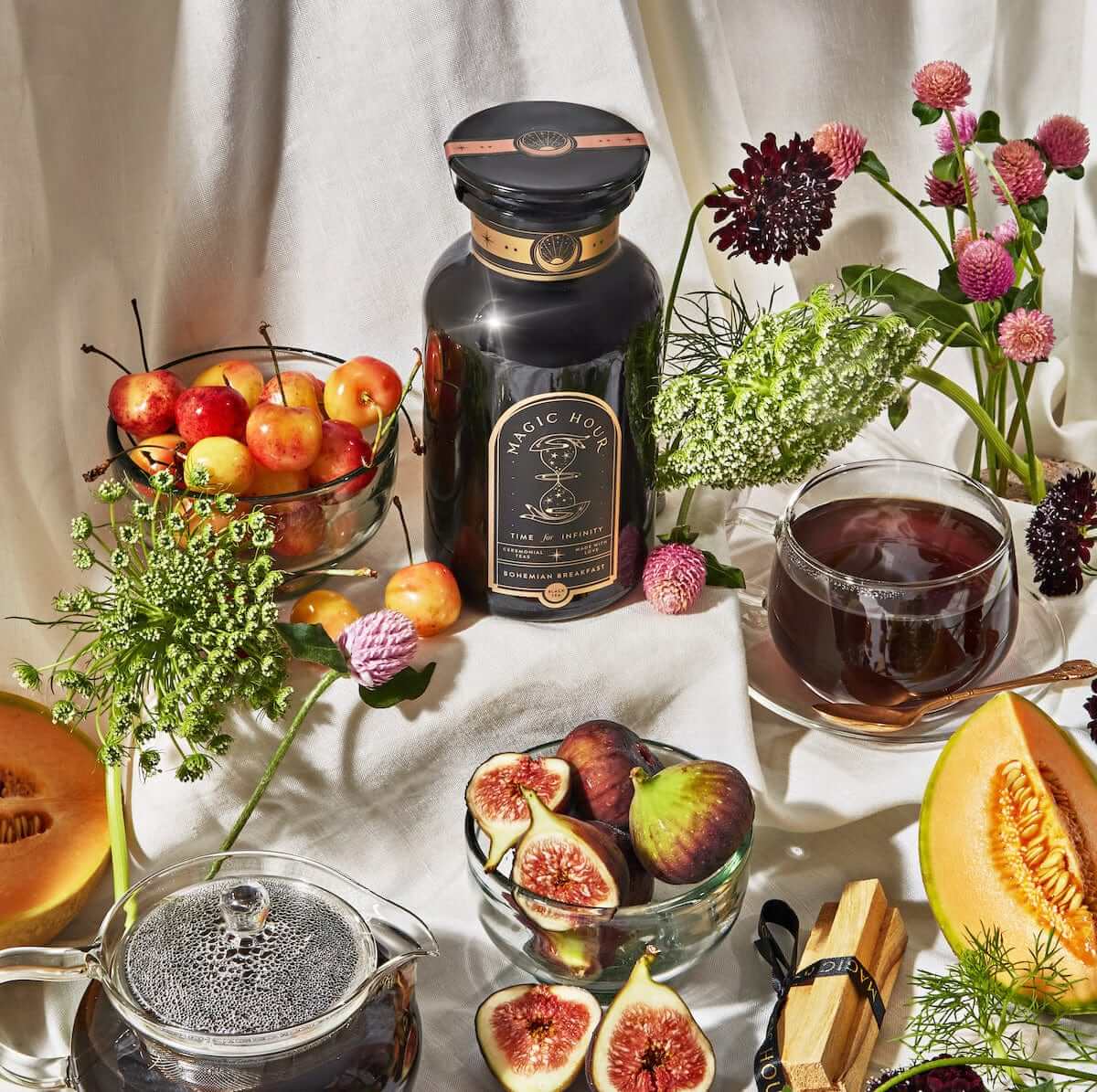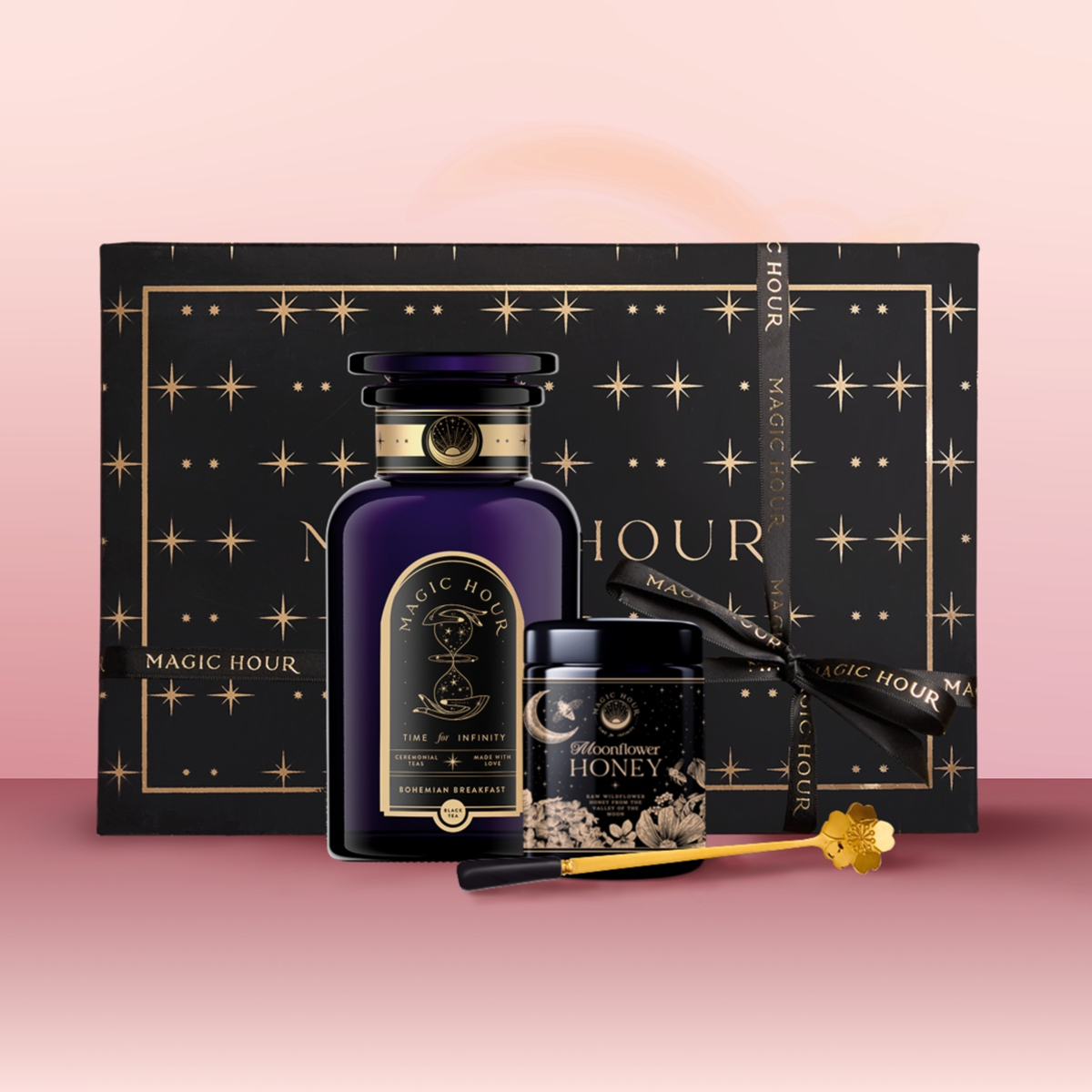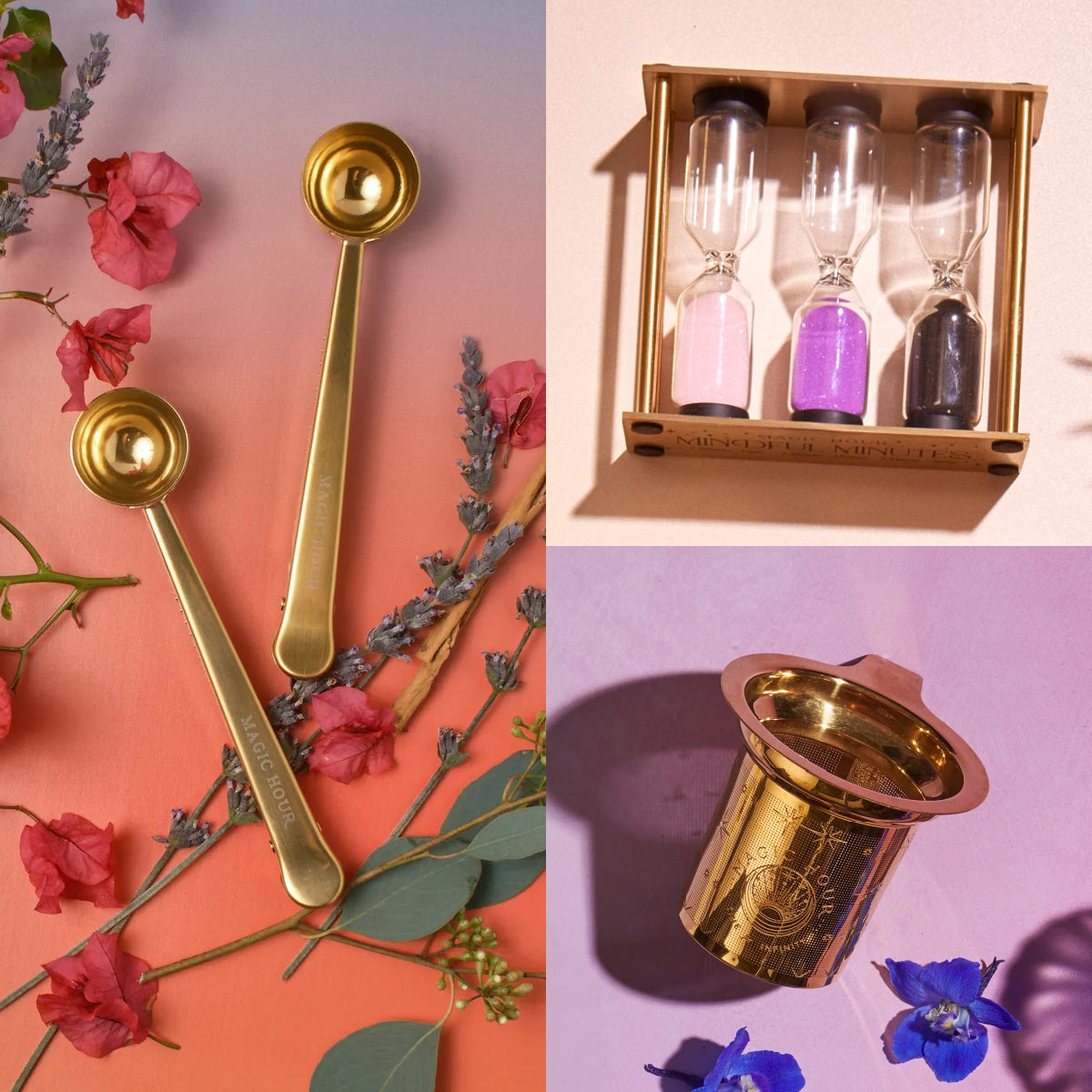English Breakfast tea is a popular black tea. As the name suggests, it is often taken with breakfast or enjoyed as an afternoon refresher.
It’s bold yet smooth, rich but not overwhelming, and an incredible canvas for added flavors like milk and sugar.
If you want to discover more about your favorite tea or seek a substitute for your morning coffee, we’re here to tell you about this delightful blend and how to enjoy it thoroughly.
English Breakfast Tea and its Origins
Like all black tea, English Breakfast tea comes from the Camellia sinensis plant.
Its exact origins are difficult to pinpoint amidst the chaotic mosaic of history. Still, it’s generally agreed that Robert Drysdale, a Scottish tea manufacturer, created the tea we associate with English Breakfast today.
Drysdal’s goal was to create a tea robust enough to withstand the protein-rich breakfast traditional to the British at the time.
The story goes that Queen Victoria enjoyed Drysdale’s blend so much while on holiday at Balmoral Castle in Scotland that she took a pouch home with her to England, and thus it became “English Breakfast Tea.”
English breakfast tea does not refer to a specific type of tea but is a blend of tea leaves from Kenya, Sri Lanka, and India. Some of the most popular varieties include Ceylon tea, Assam tea, and Darjeeling tea. It is typically taken with milk and sugar, although some people prefer to have theirs black.
What Does English Breakfast Tea Taste Like?
English breakfast tea has a more robust flavor profile than green or herbal tea. This decadent flavor comes from the oxidation process it undergoes during processing. Black teas, like English breakfast, oxidize for a longer period of time, giving it its signature rich taste.
Depending on the blend and preparation, English breakfast tea ranges in taste from slightly bitter and malty to sweet and plant-like, reminiscent of freshly cut vegetables.
Whatever the blend, English breakfast is robust enough to withstand sugar and milk, and it is often served with both to round out its flavor.
If you are a coffee lover, it will please you to know that English breakfast tea features a bold and rich flavor similar to the roasted notes of coffee. It comes with nutty undertones as well as sweet and bitter notes. It is milder compared to Scottish and Irish breakfast tea.
Those who have had Earl Grey tea before can compare it here. Earl Grey tea has a bergamot and lavender scent, giving it a citrus flavor that is not found in English breakfast tea.
How Much Caffeine is in English Breakfast Tea?
According to Mayo Clinic, an 8-ounce cup of brewed black tea has about 47 mg of caffeine.
Comparatively, the same amount of coffee has approximately 96 mg of caffeine.
Remember that for coffee or tea of any kind, the exact amount of caffeine per 8 ounces depends on brew time and processing method. Some will have much more caffeine and some less, but these are good averages to go buy.
This chart helpfully compares the different approximate caffeine content for several tea and coffee types.

English breakfast wakes you up in the morning and keeps you alert. The naturally occurring tannins and phenols contribute to its invigorating properties.
These compounds enhance the tea’s briskness and help stimulate alertness, making it a popular choice for a morning beverage and a good substitute for coffee.
Everyone traditionally enjoyed the English Breakfast tea with milk and sugar, which complement its strong flavor, mellowing the bitterness while adding richness and sweetness to the experience.
The Benefits of English Breakfast Tea
The robust health benefits of all teas are well documented, and English breakfast tea is no exception. Here is a snapshot of some of its awesome benefits.
Black teas (like English Breakfast) keep you healthy in the following ways:
- Contains helpful minerals like magnesium and potassium
- Reduces risk of developing diabetes
- Reduces harmful gut bacteria
- Supports immune health
- Strengthens oral health
- Promotes heart health
- Reduces cancer risk
- Nourishes stomach
- Aids digestion
English breakfast tea is not just delicious. It boosts your health too. What more could you ask?
The Perfect Cup of English Breakfast Tea
Now that you know a little bit more about English breakfast tea, it’s time to brew the perfect cup.
Technique
Here are the tools you will need:
- Loose-leaf English Breakfast tea (or tea bags)
- Strainer (if using loose-leaf tea)
- Milk and sugar (optional)
- Teapot or tea infuser
- Teacup or mug
- Kettle
Steps
Boil water: Unlike some other teas (green, herbal, matcha), English breakfast tea requires boiling water to bring out its full flavor profile. Heat fresh, cold water in a kettle. Boil to 212 degrees.
Add desired tea: If you’re making a single cup or a small pot of tea, use a single tea bag. If you’re using loose-leaf, use 1 teaspoon of tea leaves per cup (6-8 oz). Place loose-leaf in a tea infuser.
Add water: When the water has come to a boil, immediately pour it into your cup or teapot, making sure you submerge all the leaves.
Steep: How strong you like your brew is a matter of taste. The rule of thumb is to steep for 3-5 minutes. Less time gives you a lighter brew, and more time gives you a stronger one. You can brew for even less or more time if you’d like; it’s completely up to your taste and preferences.
Remove leaves: Once the steeping has concluded, remove the tea bag or tea infuser from your pot or cup of tea. If you did not use a tea infuser with loose-leaf tea, strain the tea through a tea strainer into cups before serving.
Add milk and sugar: This step is optional, of course, but milk and sugar is how English breakfast is traditionally taken. You may opt for different sweeteners such as honey or agave syrup, different types of milk, or no additives at all.
Serve: Serve while hot and enjoy thoroughly!
Tea time is restorative and pleasurable and can also be a meditative practice filled with beauty. We have designed several tea preparation products to enhance your experience if you’d like to view them in the Magic Hour Shop.

Recipes
There are many ways to enjoy English breakfast tea. We’ve already described how to make a traditional cup, but these recipes may also interest you.
Black Tea Latte
Ingredients
2 teaspoons Bohemian Breakfast tea from Magic Hour
5/8 oz 1:1 simple syrup
Warm or steamed milk
Powdered cocoa or cinnamon
Directions
Bring fresh water to a boil (212 degrees).
Pour 5 oz water over Bohemian Breakfast tea in a tea infuser
Steep for 5 minutes
Remove the tea infuser and add 5/8 oz of simple syrup
Steam or warm milk and fill to 12 oz
Dust with powdered cocoa or cinnamon
Enjoy.
British Breakfast Tea Latte
Ingredients
2 teaspoons of Breakfast in Paris tea from Magic Hour
1 cup boiling water
2 teaspoons white sugar
2 teaspoons turbinado sugar (sugar in the raw)
⅔ cup 2% milk
Directions
Bring fresh water to a boil (212 degrees).
Place tea in tea infuser in teapot
Fill with boiling water
Steep for 5 minutes
Remove tea infuser
Froth milk with a milk frother or simmer carefully on the stovetop and plunge in a French press until frothy
Pour tea into a cup of your desired size and add sweeteners.
Add frothed milk
Enjoy!
English Breakfast Teas From Magic Hour
English breakfast tea, in all its varieties, is a magnificent morning boost and delicious pick-me-up throughout your day. It’s designed to give you energy, and its naturally contained compounds offer many health benefits.
Enjoy English breakfast tea in many ways, including with milk and sugar, as a latte, or plain and hot. There is no way to go wrong with it. Try our carefully selected varieties in the Magic Hour Shop, or take the Tea Quiz to discover the right blend for you.







